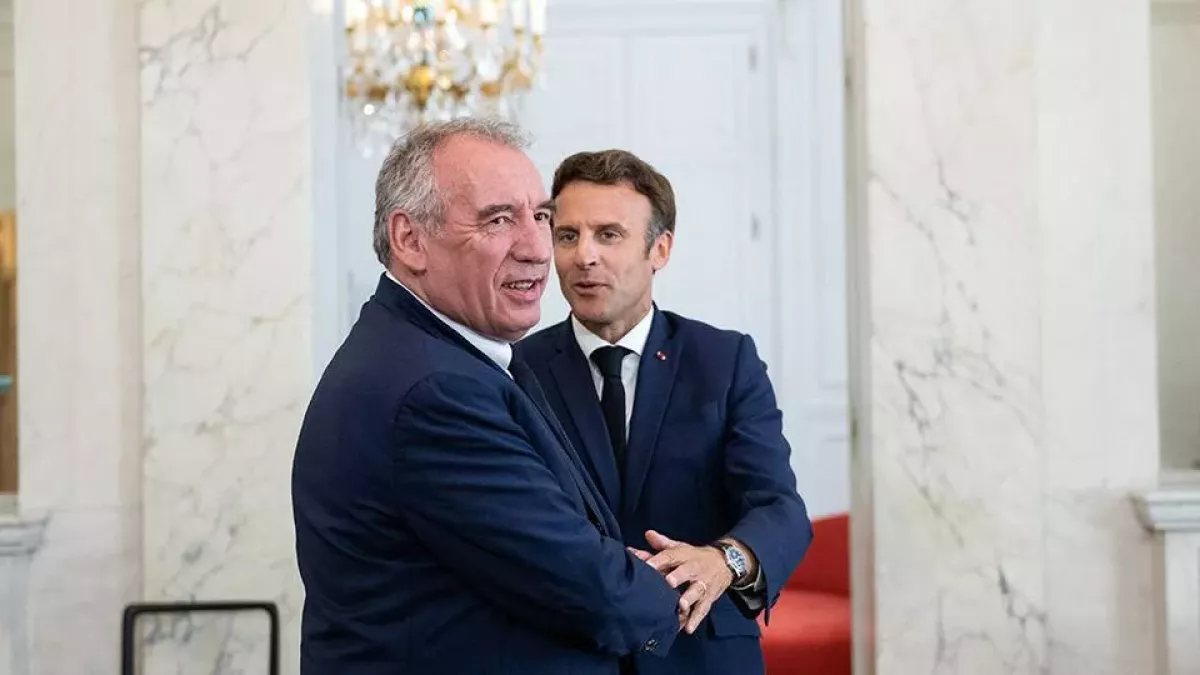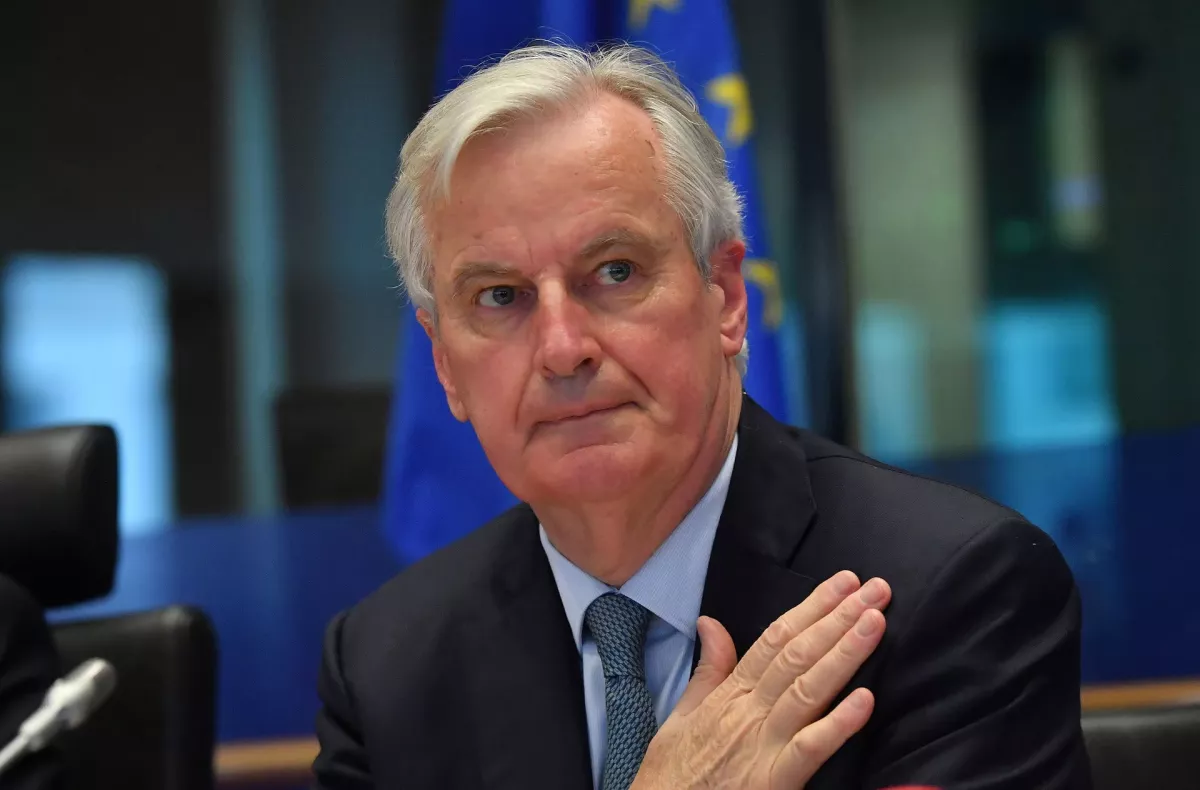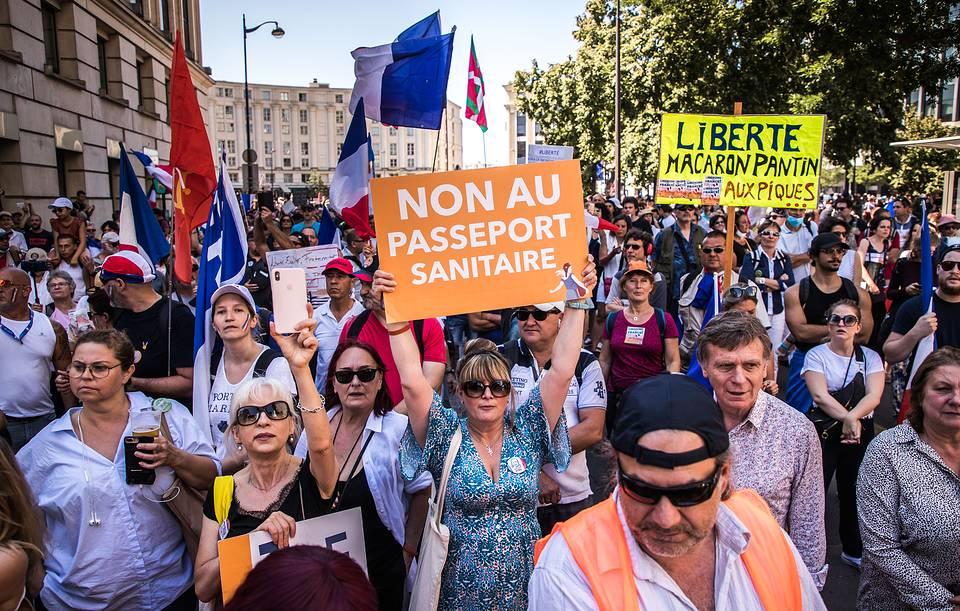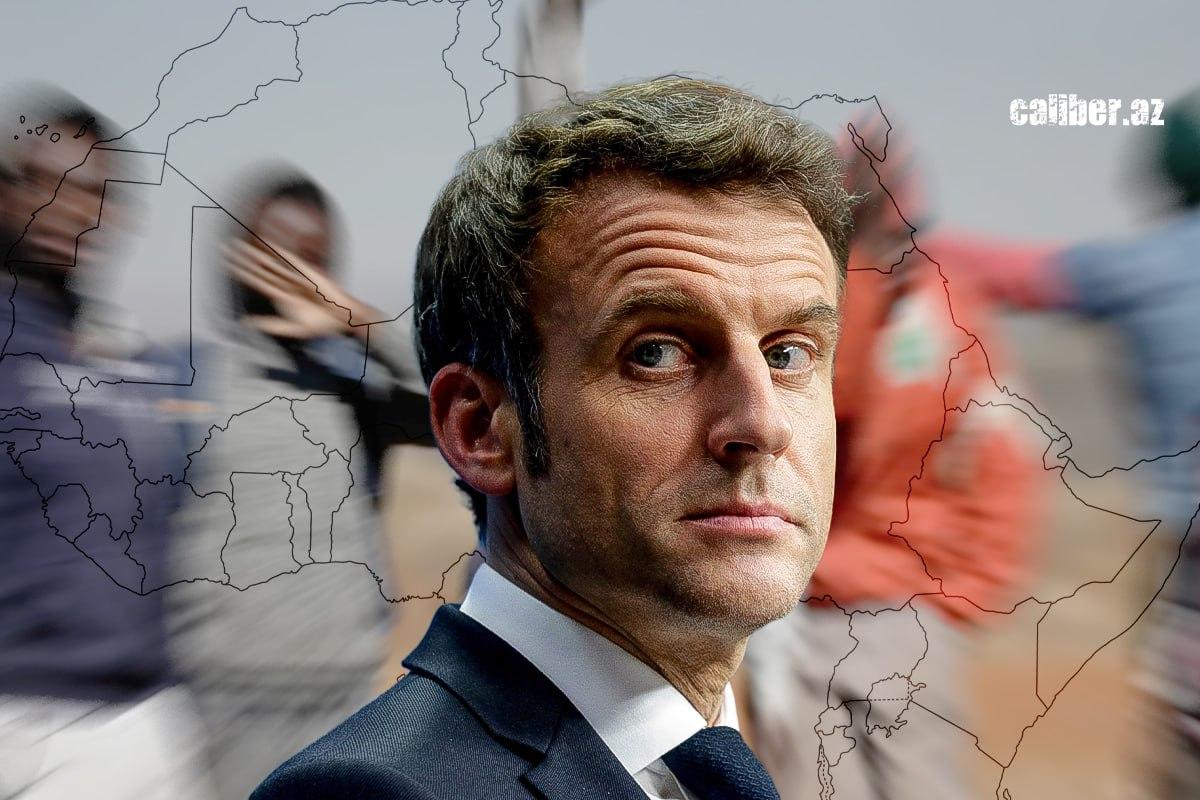Macron, Bayrou, and chaos in France The inept experiments of a failed president
Two famous lines from classic literature aptly describe the current state of France's socio-political landscape. “Something is rotten in the state of Denmark” — Shakespeare’s timeless observation, and “All was confusion in the Oblonsky household” — a nod to Tolstoy’s Anna Karenina.
Emmanuel Macron continues his inept experiments with France. His latest move has been to appoint yet another powerless prime minister, veteran politician François Bayrou. Now, as the leader of the small Democratic Movement party, Bayrou is tasked with attempting what the previous failed prime minister, Michel Barnier, could not accomplish: cleaning up the mess that Macron has turned French political life into.
The outcome seems all too predictable. Just recently, France was rocked by a major scandal surrounding the parliamentary vote of no confidence in Michel Barnier's government. Yet Macron shows no signs of slowing down. Over his seven years as president, it is Macron who has created one crisis after another. It is Macron who tried to resolve these issues with a reckless move—dissolving parliament and calling for early elections. And once again, he suffered defeat. The hostile parliament continues to block him from gaining control over the government, leaving France effectively without a functioning government since the summer elections.
Now, let’s talk about the new prime minister. François Bayrou, aged 73, is considered a centrist by French standards, though his views lean toward left-wing liberalism. He is a likable, cheerful figure—a farmer’s son from the far south of France. As a proud Gascon and a compatriot of d’Artagnan, Bayrou once relished being called a “musketeer” by journalists in his younger days.

Bayrou has served as a minister twice. His first stint was from 1994 to 1997, when he served as Minister of Education and focused on the ambitious task of tackling illiteracy in France—yes, you read that correctly. The second time was in 2017, when he became Minister of Justice under Macron, but his tenure was brief, lasting only a month.
However, Bayrou is a veteran in the French parliament. He currently leads a small faction of 36 members, 33 of whom are from his party, "Democratic Movement."
Bayrou is also a writer and historian, having authored several books on his fellow Gascon, King Henry IV of Navarre.
Despite his long career, Bayrou cannot be considered a lucky figure in French politics. He has run for president three times, each time unsuccessfully, though he once garnered nearly 10% of the vote. He has also faced setbacks in parliamentary elections and even failed to become mayor of his hometown, Pau. Nevertheless, he now holds the position of mayor of Pau.
Why, after the scandalous failure of his previous attempt with Michel Barnier’s government, did Macron decide to entrust the role of prime minister to Bayrou? The answer lies in the fact that Macron’s choices are severely limited. The French president seems determined to ignore the logic and traditions of the Fifth Republic’s statecraft. In France, forming a government typically requires first building a parliamentary coalition, and only then selecting a leader who can form a cabinet based on that coalition's support. Macron, however, is incapable of assembling such a coalition. The majority in the French parliament is held by two opposition groups: the left-wing New Popular Front and the far-right National Rally of Marine Le Pen. Both factions despise Macron on principled grounds, and the feeling is mutual. It was these two groups that, using their combined votes, forced Barnier’s government—Macron’s previous appointee—into resignation.

The only way to secure support for the government in parliament is to unite not only Macron's own party members but also a handful of small, disparate factions from the political center. However, even this is not enough. To achieve a fragile but formal majority in the National Assembly, Macron would need the votes of another 50-60 deputies. These votes can only be obtained from the left-wing. And there is only one suitable candidate for such a crucial alliance: the Socialist faction within the New Popular Front.
To attempt negotiations with the Socialists, Macron needs François Bayrou. Bayrou knows everyone in French politics, including several generations of Socialist party leaders. As a centrist, he could theoretically be an acceptable figure to the Socialist leadership.
In previous decades, Bayrou, with his small liberal party, has repeatedly acted as a mediator between the powerful left and right factions in parliament.
But with near certainty, it can be predicted that today, Bayrou is unlikely to succeed in this role.
The issue is that the left-wing members of parliament, part of the New Popular Front, have nominated their own candidate for prime minister, Lucie Castets. They have every reason to do so, as the left holds the largest bloc in the National Assembly with 180 deputies. This bloc includes Trotskyists from La France Insoumise, Socialists, Greens, and Communists. They also have their own program for the government—a program that is unacceptable to centrists like Bayrou, the right-wing, Macron, or the majority of the French people.
For instance, the left demands raising the minimum wage to 1,600 euros, lowering the retirement age, and drastically increasing taxes on anyone earning more than 4,000 euros for a family of four. France cannot afford this, especially given the current financial situation, which requires not only increased taxes but also budget cuts.
François Bayrou faces an almost insurmountable task. The left needs its own prime minister and its own government, and Bayrou is not part of their plan. However, he has already started taking some steps. Rumors are circulating in the French establishment about a secret lunch between Bayrou and former president, now member of parliament, François Hollande. The two are old acquaintances. If anyone is to try to persuade the Socialists to break from the New Popular Front and support Bayrou’s future cabinet, it would have to be through this former Socialist leader.
However, the current leader of the Socialists, Olivier Faure, has already stated that his party "will not participate in Bayrou's government." The Greens have been equally firm in their stance. "This is no longer politics, it's bad boulevard theatre," said the leader of the Green party, Marine Tondelier. "This is yet another humiliation for democracy," concluded Manuel Bompard, leader of the parliamentary faction of La France Insoumise.
So, the position of the left is clear. But Bayrou, it seems, is determined to try anyway.

Meanwhile, some in France have already started preparing for potential early presidential elections. Supporters of the most prominent left-wing figure in French politics, Jean-Luc Mélenchon, leader of the La France Insoumise party, are beginning to lay the groundwork for an emergency presidential run. They have started testing the waters for gathering the required 500 signatures from deputies at all levels—from municipal to regional—necessary by French law to nominate a presidential candidate.
This is one indication that the left is not interested in negotiating with Macron; instead, they seem intent on dismantling his authority over France and exacerbating the crisis to its breaking point. Increasingly, politicians and experts in the country are coming to the conclusion that the only way to resolve the current crisis is through the voluntary resignation of the failed president.
The paralysis of the executive branch, effectively orchestrated by Macron, only exacerbates the severe economic and political problems facing France. The most pressing issue is the lack of an approved budget for 2025. The 2024 budget already shows a deficit of 150 billion euros, and next year, this gap is expected to widen to 180 billion euros. Barnier had prepared a budget proposal that included 20 billion euros in spending cuts and a 40 billion euro tax hike. This proposal, however, failed to satisfy anyone—neither the left nor the right—and led to a vote of no confidence in the parliament.
At the same time, France's national debt is skyrocketing due to this deficit. The disastrous results of Macron's presidency are clear: over the course of his seven years in office, the debt has surged from 2 trillion to 3.2 trillion euros. Consider this: over the entire previous millennium of the country’s history, France accumulated a debt of 2 trillion euros. Yet Macron, in just seven years, has added an additional 1.2 trillion euros to that total.

France’s foreign policy is unraveling. Under Macron's leadership and as a result of his reckless governance, Paris has lost ground in its traditional sphere of influence—Western and Equatorial Africa. French presence is being actively pushed out by local governments.
France has become embroiled in the crisis in Ukraine and has destroyed its relations with countries in the South Caucasus, such as Azerbaijan and Georgia. Macron himself has directly contributed to a crisis in relations with Algeria, taking a clear stance in favor of Morocco in the dispute over Western Sahara.
Finally, Macron is spawning one internal crisis after another. Protests by French farmers continue unabated, as they oppose the agricultural policies of the EU, which Macron supports, and which are devastating local production.
Macron’s provocative decisions led to the uprising in New Caledonia, which paralyzed life in this distant French territory. Under Macron’s presidency, France has been overwhelmed by an unprecedented wave of crime and drug abuse, deeply troubling ordinary citizens. The country has also been flooded with hundreds of thousands of illegal migrants, a situation previously unseen.
Even if Bayrou succeeds in forming a government that avoids a vote of no confidence in parliament, he will have to face all of these problems, which were created by Macron’s administration. Does he really want that? However, necessity often drives action.
Elmar Huseynov, for Caliber.Az








